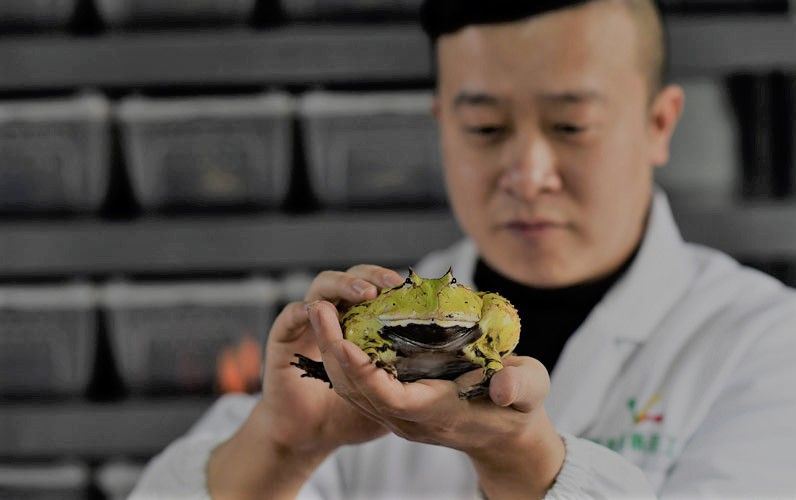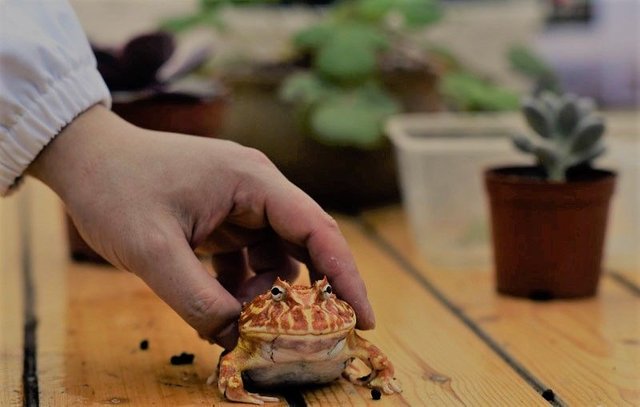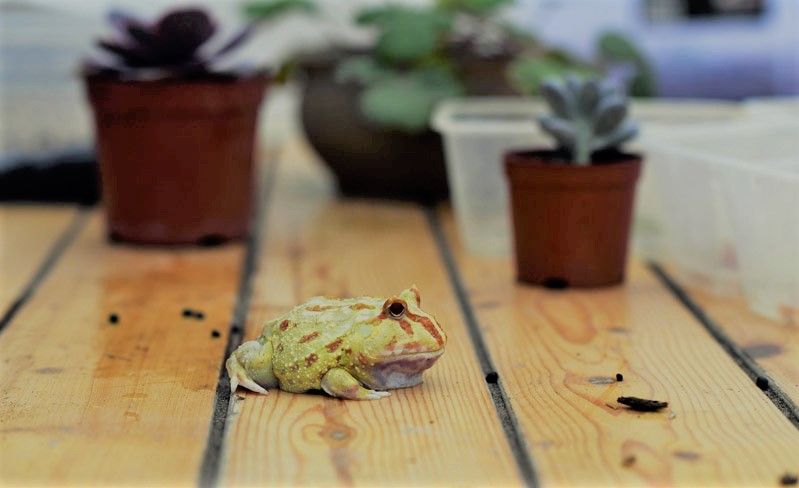A Chinese turns frog breeding into a lucrative business
BEIJING, Feb. 5 (Xinhua) - While a great many Chinese have as of late turned out to be fixated on a portable amusement about a voyaging frog, a man in Chongqing has been raising creatures of land and water as pets for quite a long time - and has transformed his side interest into a promising business, as per Monday's China Every day.

Li Shu, 31, used to be a Sichuan Musical drama artist and claimed a move club. However, he cherished gathering unusual things, and in 2006, he purchased a fancy horned frog at a pet market.
"I had never observed a frog with such delightful hues," Li was cited as saying by the daily paper. "My life changed at that point, and now it's about my frogs."
Li was besotted with the little animal and would keep an eye on it for the duration of the day to see its development. He started to gather more pet frogs, as well.

He found that nobody in China had the innovation or experience to breed pet frogs and that all the horned frogs in the nation were transported in. With no related foundation, he had the intense plan to breed them locally and even sold his move club.
Li assembled a frog cultivate in rural Chongqing and began his reproducing venture. Ordinary, he sustains and washes the frog, and records their exercises to discover the best possible approaches to breed them.
In the winter of 2013, an irresistible infection slaughtered more than 200 frogs at the homestead and just 20 survived, which was an immense hit to Li's exploration and place him under water. In any case, he didn't surrender and turned into the main individual in China to breed horned frogs.

Presently his homestead is the nation's biggest frog reproducing base with many species. Some novel ones offer for as much as 10,000 yuan (around 1,587 U.S. dollars).
"Chinese frog darlings don't have to purchase imported frogs any longer," Li stated, adding that he now intends to build up some new species and make a commitment to preservation.